What brand of laundry detergent do you use? Most folks have a brand they prefer, either for its effectiveness or its scent. Nowadays, there are plenty of laundry detergent options to choose from at the store, with big names like Tide, Bounce, Gain, Cheer, and more remaining popular picks.
But what if none of those brands work for you? Maybe you’ve been unsatisfied with their results or are bothered by their strong scents. Perhaps you or a family member has sensitive skin that is irritated by the chemicals used in consumer laundry detergent. You may even simply be looking for a more eco-friendly way to clean your laundry without sacrificing efficiency.
Suffice to say, there are plenty of reasons to look for laundry detergent alternatives. Each of the following items can be used as a substitute for store-bought laundry detergent. However, their effectiveness and affordability tend to vary. That’s why I’ve taken some time to collect some current information about the uses of these laundry detergent alternatives.
We also uncovered a couple of myths that just don’t work. You might just save yourself some money
Read on to learn if one of these options will serve your home’s alternative laundry washing needs!
Laundry Detergent Substitute Ideas That work
Truly Free Laundry Wash
If the reason you’re searching for a laundry detergent alternative is because you’re trying to avoid the toxic chemicals found in most commercial detergents, then Truly Free is worth a look.
This option isn’t so much a detergent alternative; It is simply a better choice for those interested in non-toxic laundry care. This laundry wash refill powder contains just five ingredients and is made up entirely of soda, minerals, and essential oils.
Unlike other powdered detergents, you don’t have to worry about clumping and residue with this unique product. It is made to be used with the company’s refillable detergent bottle and pre-mixed with water to create an effective and simple to use liquid detergent.
For normal loads, this soap is impressively effective. And for those loads that require a little extra help, you can always add a couple of scoops of Truly Free’s non-toxic, mineral-based OxyBoost powder to the mix. The company also makes all-natural stain sticks and sprays, softening mix, laundry machine cleaner, and more.
Truly Free’s laundry soap refill comes in scented and unscented formulas, with the former retaining its fabulous smell even through the drying cycle. Both products are available as a one-time purchase, or at a highly discounted price when you subscribe to Truly Free and sign up for their auto-ship option (cancel or skip at any time).
Learn More: Read our full list of non-toxic laundry detergents here.
Baking soda Instead of Detergent
Baking soda has long been used as a multipurpose cleaner for everything from washing hands to brushing teeth. When it comes to washing your clothes, baking soda really comes through in a pinch by removing acids and oils effectively. Baking soda can also remove odors, making it ideal for use when cleaning towels, bathing suits, undergarments, gym clothes, and more.
Most importantly, baking soda is 100% safe to use in a washing machine. Baking soda’s chemical composition does not cause excessive suds to form when it is mixed with hot or cold water. At the same time, it easily dissolves in water, thus preventing build-up inside your washing machine’s internal piping.
As such, baking soda is a great long-term laundry detergent alternative. Many homeowners swear by this method, especially given its affordability. Should you choose to, you can also enhance standard scent-free baking soda with some essential oils. This is safe for all regular clothing types and leaves them smelling like they’ve been washed with standard detergent.
In terms of availability, baking soda is sold at all grocery stores or can be bought in bulk online. You may already have some at home, though, so be sure to check your cupboards.
Method for use:
- Add ½ cup of baking soda during wash cycle
- Then, add a second ½ cup of baking soda during rinse cycle
- For heavy odors, add 1 cup during the wash cycle
Lemon Juice
Lemon juice (as well as lime juice) are often presented as a viable laundry detergent alternative. To a certain extent, this is true. The very acidic nature of pure lemon juice works well when it comes to loosening stains and brightening whites. This process can be enhanced further with the addition of some table salt.
However, lemon juice has its drawbacks. First off, it is often hard to obtain enough lemon juice volume to wash a family’s worth of clothing (even when diluted in water). This can make it a pricier option upfront. Also, the strong acids in lemons can cause damage to some fabrics over time and may cause some bleaching on dark colored fabrics.
In any case, lemons can be found at most grocery stores year-round. However, as a word of warning, you should never use artificial lemon juice for cleaning laundry. Fake lemon juice sometimes includes added colors that may cause staining when used for clothing cleaning purposes.
Method for use:
- Dilute 1/3 cup of real lemon juice in 3 cups of water.
- Add during wash cycle.
- Alternatively, add 1/3 cup of real lemon juice to bleach dispenser, when available.
Vinegar
Vinegar (specifically, white vinegar) may have been a laundry detergent alternative used by your mother or grandmother. They certainly knew what they were doing because this mildly acidic liquid is fairly effective when it comes to removing stains and musty odors. Better yet, it does not leave behind any residue on dark clothing once it is rinsed out and dried.
Vinegar has some other uses when it comes to washing clothes, as well. For example, vinegar can efficiently break down mildew on fabrics and remove its lingering smell. Similarly, smoky smells can be eliminated from a load of laundry by adding around a cup of vinegar.
White vinegar is widely available at most supermarkets, making it easy to buy a large volume of it at once. Also, if you’re trying to be extra frugal, you can use your white vinegar as a common household cleaner (when diluted in water). However, you should always avoid dark vinegars as these will stain your clothing almost immediately.
Method for use:
- Add ½ cup of white vinegar during wash cycle.
- Alternatively, add the same amount to the detergent dispenser on your washing machine, when available.
- Add up to 1 cup of white vinegar as needed.
Dish Washing Liquid
Depending on who you ask, dish washing liquid is either the best or worst laundry detergent alternative. Users swear that this type of liquid soap works just as well as laundry detergent while remaining cheap and easy to use. These users also claim to not experience an excessive amount of foaming when only a modest amount is used per load.
However, many washing machines specifically indicate that you should not use dish washing liquid in them. That is because their formulations are not “High Efficiency,” which essentially means they bubble up far more than regular dishwashing liquid. In turn, dish washing liquid can foam up and overflow your washing machine, making a huge mess in the process.
As such, it is best to avoid dish washing soap for this purpose. However, dish washing soap can be used if you intend to handwash your clothing. In that case, only a modest amount should be used per load (as you would when washing dishes). Most kinds of dish washing fluid will work for this purpose, though less acidic formulations tend to be more gentle on soft fabrics.
Method for use (handwashing):
- Add several drops to a tub of warm water.
- Allow soap and water to combine before adding in clothing.
- Scrub well and rinse thoroughly.
Learn more: Soap vs Detergent – What is the difference?
Oxygen-Based Bleach
In recent years, oxygen-based bleach has become a more popular laundry detergent alternative. One brand in particular, OxiClean, gained wide use and recognition through its charismatic ads during the 2000s. As stated in those ads, oxygen-based bleaches are safe to use on colored clothing and effective at removing both stains and odors.
Oxygen-based bleaches are also unique at a chemical level. To be specific, most formulas are made up of mostly sodium percarbonate. Because of their composition, they are more eco-friendly than standard detergents. It is also fairly potent, requiring only a tablespoon or two per gallon of water.
However, oxygen-based bleaches are not known to be fully effective alone. Instead, it is best used as a pre-soak solution or as a laundry booster. In that capacity, it can supplement normal detergent and increase the brightness of white clothes.
Most grocery stores carry oxygen-based bleaches in their powdered form. However, it can be expensive per unit, making it hard to justify as a detergent alternative.
Method for use:
- Follow instructions on package for proper amounts to use per load of laundry.
- Precise amounts will vary from brand to brand depending on the concentration of their ingredients.
Oxy Prime
Oxy Prime is one of several laundry detergent alternatives to hit the market in recent years. Its primary selling point is its “natural” formula, which is free of perfumes, dyes, fillers, and artificial brighteners. It also lacks phosphates, so it is more eco-friendly than standard detergent.
In terms of effectiveness, Oxy Prime is a bit hit and miss. When it comes to standard cleaning, Oxy Prime is effective at removing odors and light stains. However, set-in stains are often too much for this slightly-weakened form of oxygen-boosted detergent.
Even so, Oxy Prime may be a worthwhile option if you or a family member often allergenically react to standard liquid detergents. That’s because its formula is listed as being hypoallergenic. Not all stores stock it, though, so you may find it more readily online.
Method for use:
- Follow package instructions for amount to use per load of laundry.
Borax
Borax is another old-fashioned cleaner that remains a fairly worthwhile laundry detergent alternative. Its very basic formula is able to efficiently remove odors and stains from bright clothing. In particular, pet owners swear by Borax for removing colors and odors caused by pet urine stains.
Borax famously has one major drawback, though. Even when used modestly in a washing machine, it tends to leave behind a white residue both on clothing and the machine itself. While this can often be rinsed away with ease, this does add an extra step to the cleaning process.
Should you choose to use Borax for clothing cleaning, you can pick some up in your local store’s home cleaning department. Otherwise, it can be ordered online at a bulk rate.
Method for use:
- Pre-soak your laundry for 30 minutes in a combination of 1 tablespoon of borax per gallon of water.
- Alternatively, add no more than ½ cup of borax during a pre-wash laundry cycle.
Soap Nuts
Soap nuts are actually one of the oldest forms of “laundry detergent,” dating back to use in ancient times in India and China. Today, they remain a viable laundry detergent alternative for users looking to go all natural. That’s because these nuts are not treated in any way and are instead added directly to a load of laundry.
Soap nuts are a great option for homes with one or more sufferers of extreme allergies. That’s because soap nuts are naturally hypoallergenic. They won’t even bother folks with nut allergies due to the unique nature of their inner pulp.
Truth be told, soap nuts are not the best when it comes to removing stains or odors. But they can still do the job if you are only doing light washing. In most cases, you’ll need to order them online.
Method for use:
- Add 6 nuts to the porous bag provided.
- Place in the washing machine during the wash cycle. Remove afterward.
Shampoo and Body Wash
When in a pinch, some folks claim to have had success washing their clothes with shampoo or body wash. While this may work in a pinch, these liquids should not be used in a washing machine. Doing so will cause excessive foaming, which may in turn overflow the unit and create a mess.
Instead, these liquid soap types should only be used in very small amounts when handwashing clothing. Afterwards, those clothes should be rinsed very well to prevent soap from hanging onto the fabric, creating residue. Also, be aware that neither of these soaps are good at removing stains.
Along the same lines, an all-purpose soap called Campsuds is often advertised as being able to clean clothing. Indeed, it can remove odors and some stains in a pinch. However, it is very caustic and may take the color out of your clothing over time. It should also not be used in a washing machine.
Bar or Hand Soap
Bar soap also seems like it should be an obvious laundry detergent alternative. However, in practice, it is less than stellar. While it does remove odors and some stains, it also foams up a lot due to its formulaic make up. This makes it risky to use in a washing machine.
Instead, bar soap should only be used when hand washing clothing. To do this, the bar can be wetted and then applied to any stains before lathering. Proper rinsing is also necessary afterwards to prevent a white residue from forming.
If you intend to use bar soap for this purpose, try to find the most “gentle” type possible. In other words, if it doesn’t dry out your hands and skin, it should be gentle enough for your clothes.
Method for use (handwashing):
- Soak laundry in warm water.
- Lather soap bar and apply lightly to the clothing’s surface.
- Rinse well.
Vodka Instead of Detergent
Here’s a laundry detergent alternative you might have heard from a college roommate – vodka. Yes, this popular liquor can and has been used as a type of laundry detergent by many in a pinch. All you need is a bit of vodka (say, a few shots) and you’ll be able to disinfect clothing during a normal wash cycle.
However, disinfecting is about all vodka can do in this context. It can’t lift stains very well at all. Plus, it is rather expensive for use in this manner. If you want to try it out, though, it can be picked up at any local liquor store. Use only unflavored vodka that is fully clear to avoid unnecessary stains, as well.
Method for use:
- Add several 3 fluid oz. to a washing machine during wash cycle.
Myth – Laundry Balls
Sometimes known also as a “washing ball,” laundry balls are essentially a plastic orb or disc filled with special minerals optimized for washing clothing. They also contain magnets that are said to be able to make wash water better conditioned for cleaning purposes. When added to a load of laundry, they are said to work better than standard detergent.
In truth, though, laundry balls do not do much more than hot water alone. In fact, most claims made by the makers of these products have been tested and found false by consumer testing groups. Even the Better Business Bureau and the US Federal Trade Commission have noted the ineffectiveness of this product.
So, in all cases, laundry balls are worth avoiding. They do not work as a viable laundry detergent alternative.
Myth – Laundry Magnets
As with laundry balls, laundry magnets are claimed to be able to wash clothes without any chemical agents whatsoever. This is based around the premise that these magnets can alter water’s structure to make it more able to clean out stains and odors.
However, scientific evidence shows that this claimed effect cannot occur due to the molecular structure of water. Also, plenty of testing with comparable magnets shows that they cannot clean out stains or odors at all.
So, despite claims that these “non-toxic, chemical-free” magnets make a worthwhile laundry detergent alternative, they simply do not. You’d be better off using hot water alone because these magnet sets often cost as much as $70 a pop.
Frequently Asked Questions
Can you use regular detergent in a high-efficiency washer?
No, you really should not use traditional detergent in a high-efficiency washing machine. The sudsing action of these detergents can interfere with the cleaning process and even break the machine.
The Wrap Up
As you can see, there are a number of viable options if you are looking for a laundry detergent alternative. In fact, there are options across the board to cover your various clothing washing needs, including options for sensitive skin and deep stains. Keep in mind that some of those worthwhile alternatives cannot be used in a washing machine, though.
On the other side of the coin, some of these purported alternatives aren’t up to snuff at all. These options should be passed over if you are looking for a laundry detergent alternative that actually sanitizes and freshens your clothing.
Feel free to try one of the alternatives listed above out in your home sometime. You could even test a few different options in successive loads so that you can compare the results.
Be sure to share those results with us here! Also, if you have experience with any of these laundry detergent alternatives, share your experiences as well as any tips you have for their use. Feel free to leave questions about using alternative laundry detergents in the comment section, too, and our community of helpful users will be sure to get you an answer.
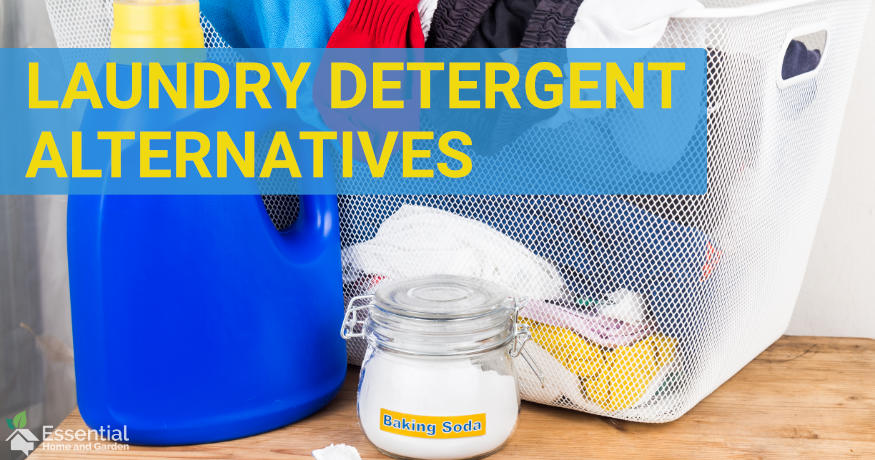
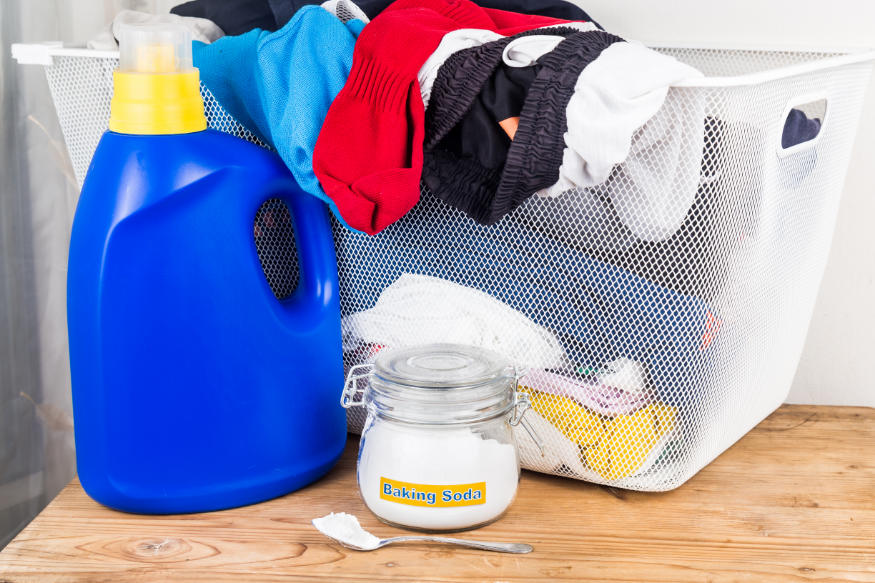
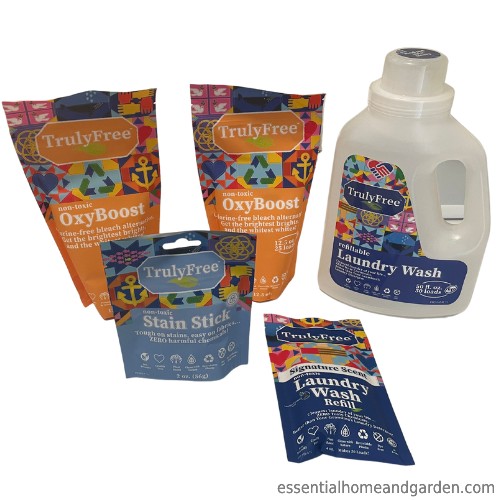

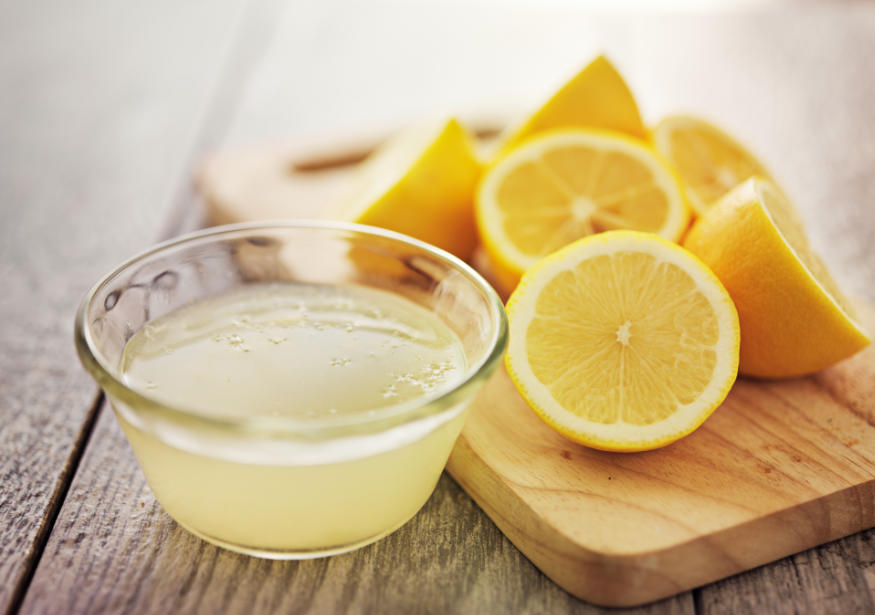
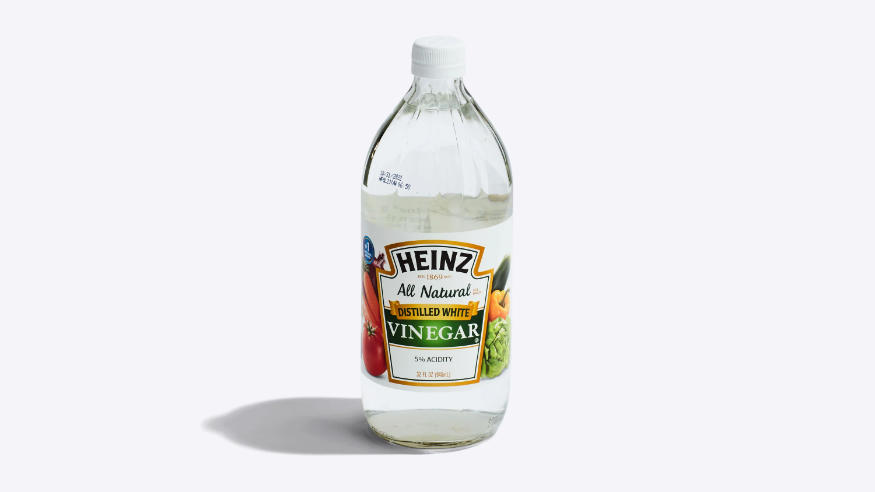
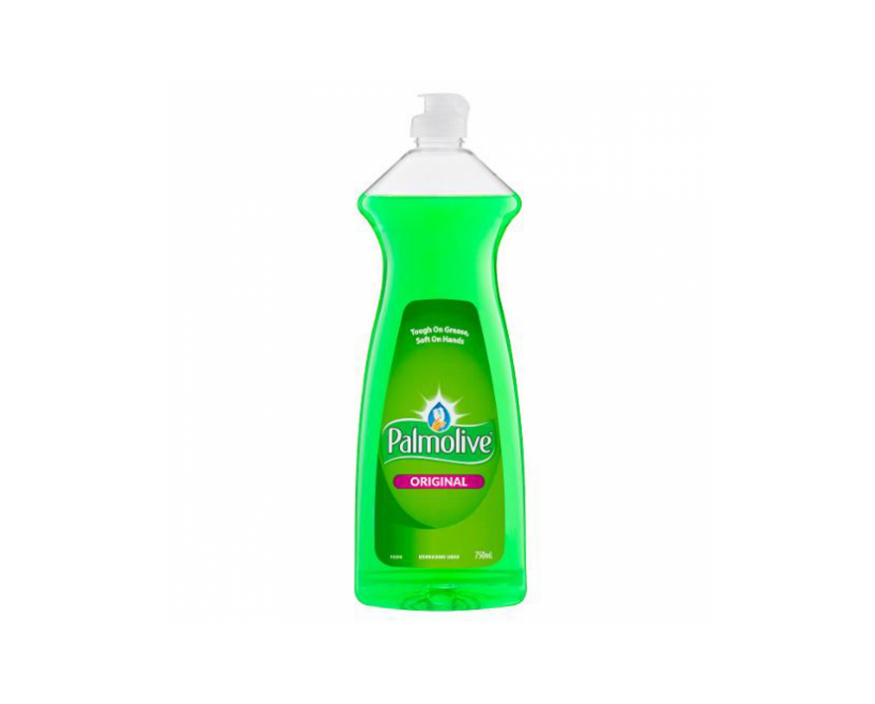
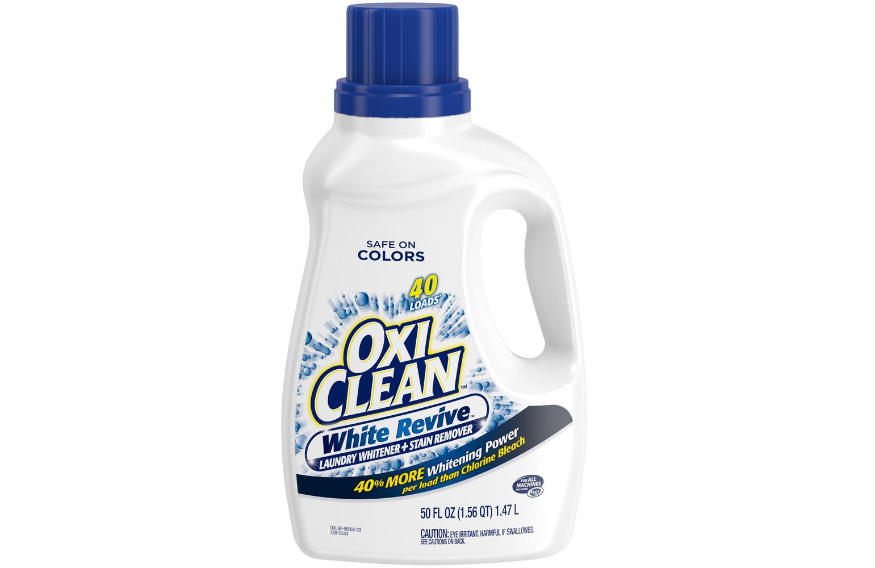
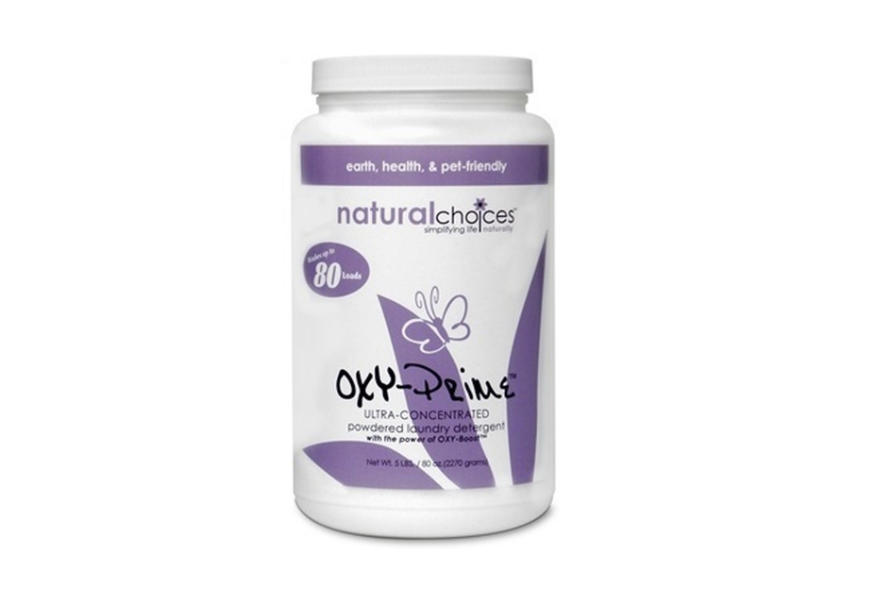
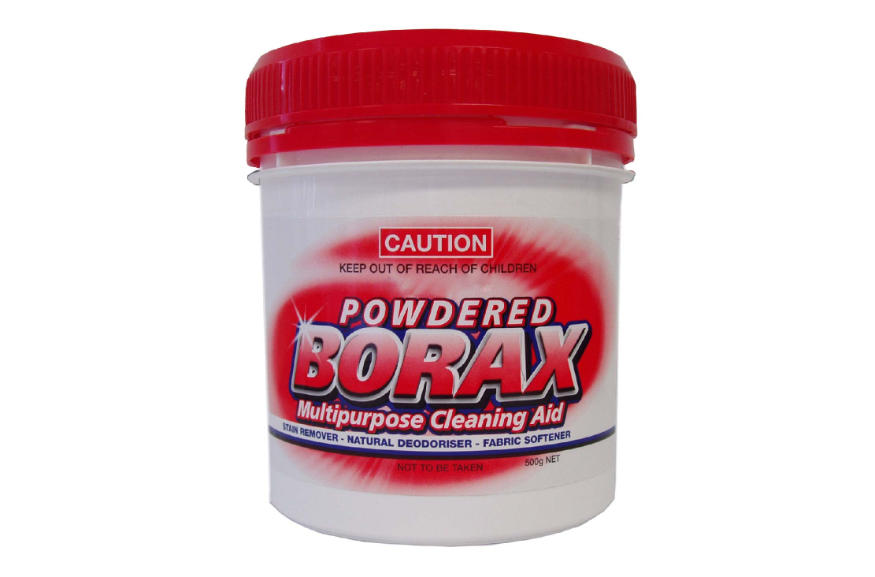
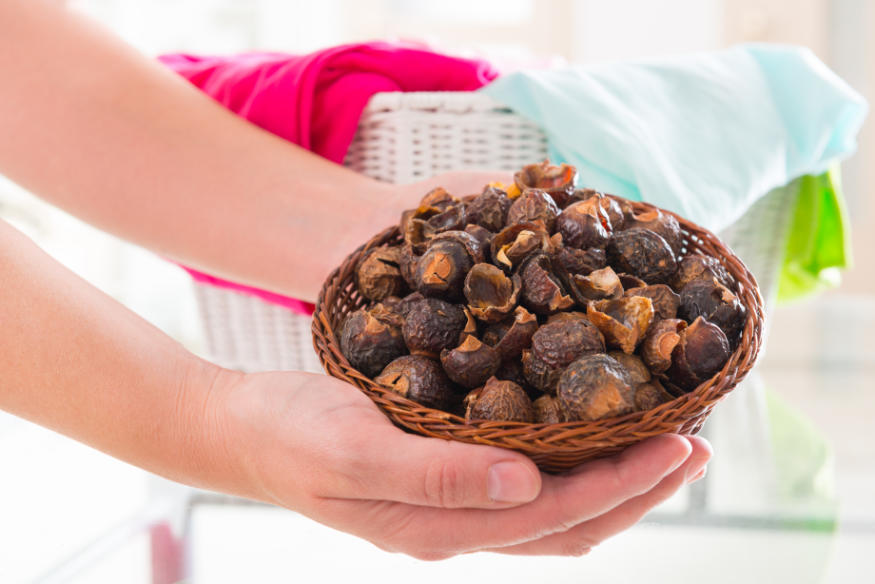
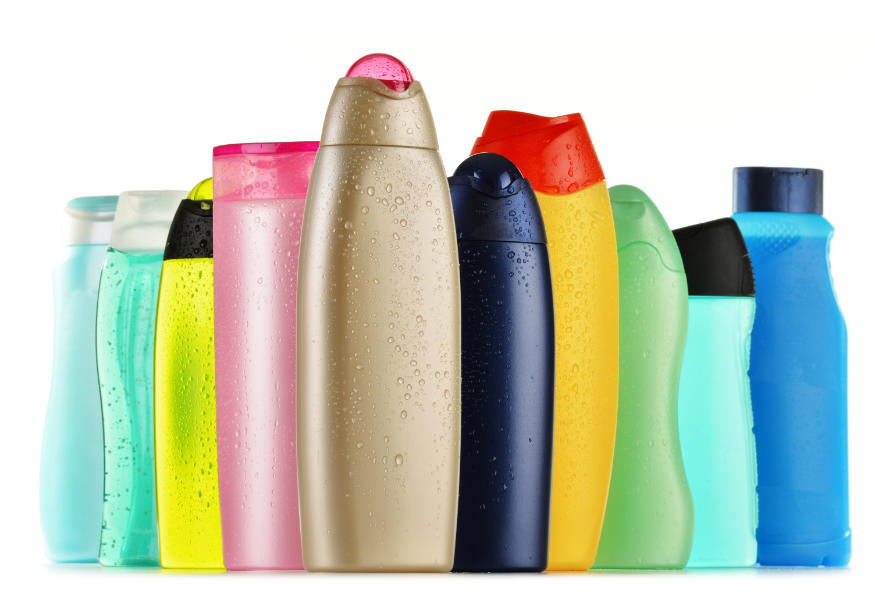
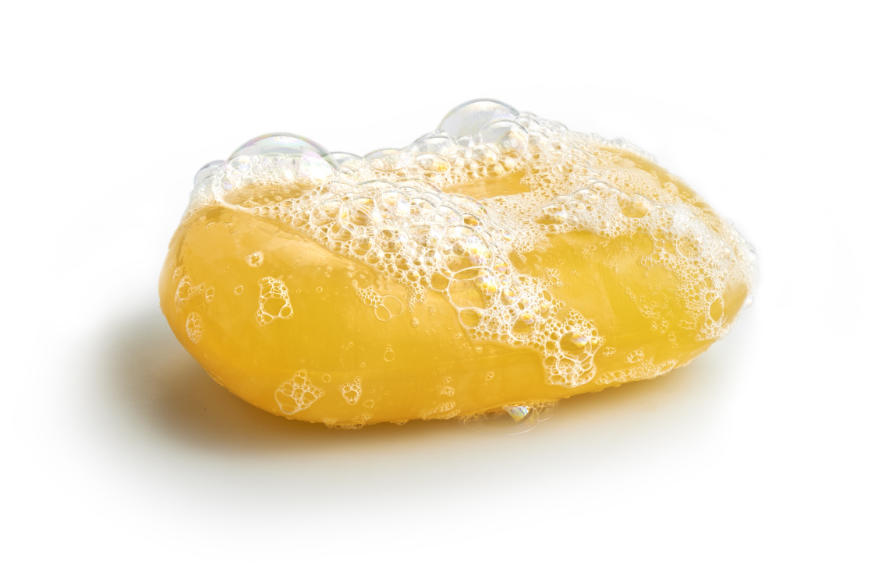
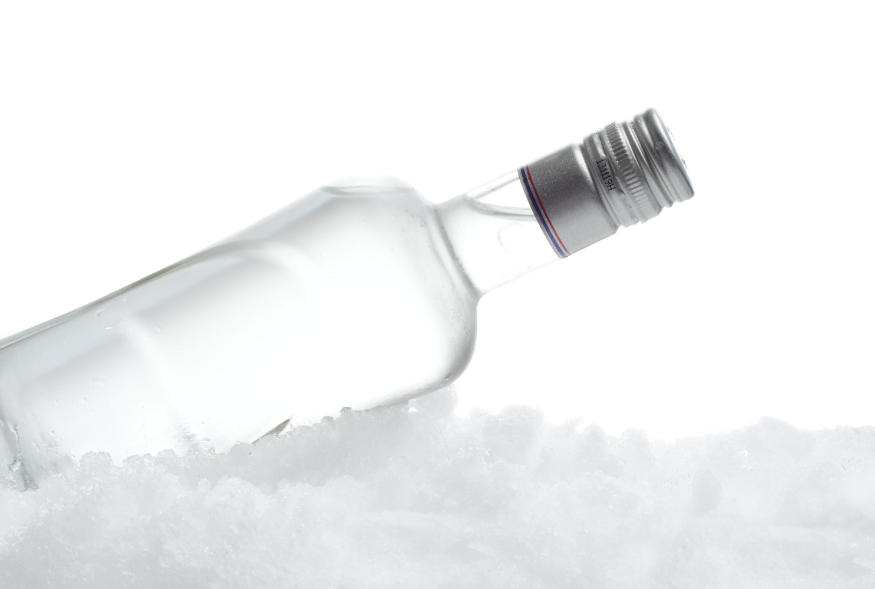
Any ideas in wash or dryer for removing cat hair for an allergic roommate?
I run my clothes in the dryer on the coolest setting for about 20 minutes, before washing them. You’ll see by the lint catcher, how much that alone will remove pet hair.
I have been making my own detergent since 2005. Equal parts grated non-scented Ivory soap, grated castile soap, Borax, baking soda, washing soda. Blend in small batches to fill reusable containers, use 1/4 cup per load, use white vinegar as a rinse agent.
Hi Erica, great recipe! How are the results? Must be good since you have been using it for so long!
We’re pretty happy, the environment can do without more chemicals, and my Mom relies on it since they have sensitive skin and were breaking out with regular detergent. Our clothes have a softness we like, too.
What is “washing soda”?
Washing soda is essentially baking soda that has had its “rising” capability (i.e. rising quick breads using baking soda) removed. This can be done at home by exposing baking soda to heat, like in your oven, for a certain temperature for a certain amount of time which I do not have memorized. You can do a web search for how to make washing soda from baking soda if that kind of thing interests you. You can also buy it in stores in the laundry section, if washing soda as a product is carried in the store. Hope that helps answer your question in a non-technical way.